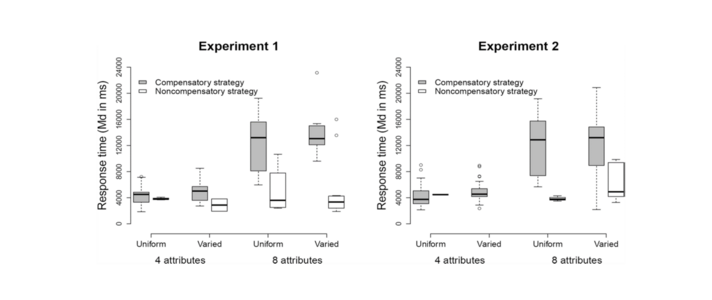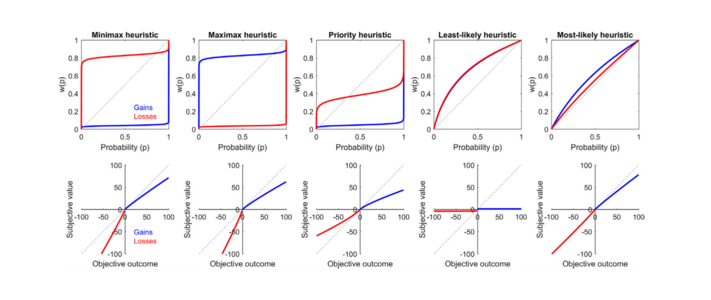Decision strategies and cognitive search
When making judgments and decisions under uncertainty, we often lack the relevant resources to optimize our behavior: Either relevant information is missing, or we are incapable of storing and processing all relevant information. Yet, we often arrive at proper judgments and decisions.
Our research targets the information processing strategies which potentially guide our decision making: Which strategies do we use? Which resources are required for their execution, i.e., how simple are these strategies? How do we select among multiple candidate strategies? Which conditions render a strategy effecient? We assume that people are able to choose from a repertoire of decision strategies. Whereas some strategies take all available information into account, more simplistic strategies (heuristics) rely on only a portion of the information. In experimental studies, Pachur (2022) demonstrates that people tend to rely on simple strategies the more information they are presented with. One of the possible explanations is that people adjust their strategy selection and refrain from complex strategies as they are rather costly and prone to errors when large amounts of information must be considered. In further analyses, Pachur et al. (2017) show that, in the context of strongt affect, decision makers use simple strategies that neglect probability information and base choices solely on the known outcomes. The authors also demonstrate how the use of heuristic decision strategies maps onto the prominent framework of prospect theory.

